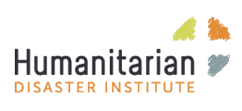
Coping With COVID-19: Managing Anxiety and Stress
Breadcrumb
Anxiety threatens to steal away our joy and peace by consuming our focus and kicking our imaginations into overdrive. Specifically with COVID-19, individuals are struggling with disquieting thoughts, such as worrying about infecting loved ones, dwelling on possible death and feeling concerned for vulnerable populations.
If you are feeling stressed or anxious, these five ways of coping will help you manage your emotions.
We need awareness and insight to start making changes in our lives. Regardless of our problems, we typically find four major elements that contribute significantly to the issue.
First, there is an entanglement with thoughts.
- What memories, worries, self-criticisms or other unhelpful narratives do we dwell on?
- What are we getting “caught up” in?
- What thoughts do we allow to hold us back, push us around or bring us down?
Second, what feelings are we struggling against?
- What are the emotions, urges or sensations we are experiencing?
- What emotions are we ignoring, fighting, suppressing?
Third, what life-draining actions are we doing?
- What keeps us stuck, wastes our time/money and drains our energy?
Fourth, what challenging situations are we avoiding?
- What have you quit, put off until later or stayed away from?
Grounding is a technique of detaching from emotional pain, internal anguish or overwhelming anxiety by anchoring yourself to the reality that is occurring in the present moment. Gaining distance between you and your negative feelings can help give perspective. Grounding can be broken down into mental, physical and soothing strategies.
Mental grounding could be:
- Describing your environment in detail using all five senses (e.g., walls are beige, the fan is whirring, the chair is firm).
- Playing a “categories” game (e.g., thinking of types of dogs, trying to name all 50 states, listing famous cities).
- Saying a safety statement out loud to yourself (e.g., My name is _______; I am loved. I am in the present, not the past. I am located in _______; the date is _______.)
Physical grounding might entail:
- Digging your feet into the floor.
- Carrying a small object (e.g., rock, ring, cloth) to touch and describe when you feel a negative emotional response.
- Running cool or warm water over your hands.
Soothing grounding examples include:
- Picturing your favorite people or places.
- Putting up inspiring songs or quotes in your environment to act as reminders.
- Thinking of things you are looking forward to next week.
- Saying a coping statement (e.g., I can handle this, this feeling will pass).
To get the most out of grounding strategies, it is recommended that you 1) try grounding for 20-30 minutes, 2) practice often and 3) create your own methods of grounding.
Deep breathing, also called diaphragmatic breathing, is a sure-fire method of managing your body’s response to anxiety and stress. Anxiety and stress attack your nervous system and send you into a “fight, flight or freeze” response that wears down your body with a multitude of physical symptoms (e.g., shortness of breath, racing heart, trembling, dizziness, sweating).
One particular method of deep breathing utilized by NAVY SEALs is called box breathing. Box breathing entails inhaling slowly for four seconds, holding your lungs full of air for four seconds, exhaling for four seconds, and holding your lungs empty for four seconds. This method is simple, yet remarkably slows down or stops a stress response. It just takes practice.
Other methods include:
- Keeping a journal of the things you are grateful for.
- Expressing gratitude to others as frequently as possible..
- Reflecting over the small or seemingly inconsequential things in your life you appreciate.
- Looking back over the struggles you have overcome and connect them to how they helped you grow.
- Identifying the “gratitude exemplars” in your life that you wish to imitate.
COVID-19 has forced us to recognize that a lot is outside our control, but focusing efforts into finding meaning in suffering can help us persevere. COVID-19 is impacting us in ways that are outside our control, but we still have the ability to choose how we respond to these unprecedented times.
We start by seriously asking ourselves, “What is the meaning of my life? What action and conduct, daily or hourly, best follows this?” A presence of meaning in our lives or a dedication to a cause greater than ourselves helps us weather any storm.
Contributor
David K. Mosher, M.S. is a doctoral candidate at the University of North Texas who is currently finishing his internship at the Texas Woman’s University counseling center.
References
Emmons, R. A., & Shelton, C. M. (2002). Gratitude and the science of positive psychology.
Handbook of Positive Psychology, 18, 459-471.
Harris, R. (2009). ACT made simple: A quick-start guide to ACT basics and beyond. Oakland, CA: New Harbinger.
Najavits, L. (2002). Seeking safety: A treatment manual for PTSD and substance abuse. New York, New York: Guilford Publications.
Key Resources

The Humanitarian Disaster Institute (HDI) is the country’s first faith-based academic disaster research center and offers both a graduate degree program and a graduate certificate.
Complete Survey to earn CNE
Education Credits
The program offers attendees the opportunity to earn up to .25 continuing education credits.
Accreditation Statement
The American Organization for Nursing Leadership is accredited with distinction as a provider of continuing nursing education by the American Nurses Credentialing Center’s Commission on Accreditation. AONL is approved by the California Board of Registered Nursing, Provider Number 15740.
Special Assistance
AONL complies with the Americans with Disabilities Act and strives to ensure that no individual with a disability is deprived of the opportunity to participate in this program solely by reason of that disability. Through its agents, AONL will provide reasonable accommodations for a candidate with a disability who requests accommodations.


